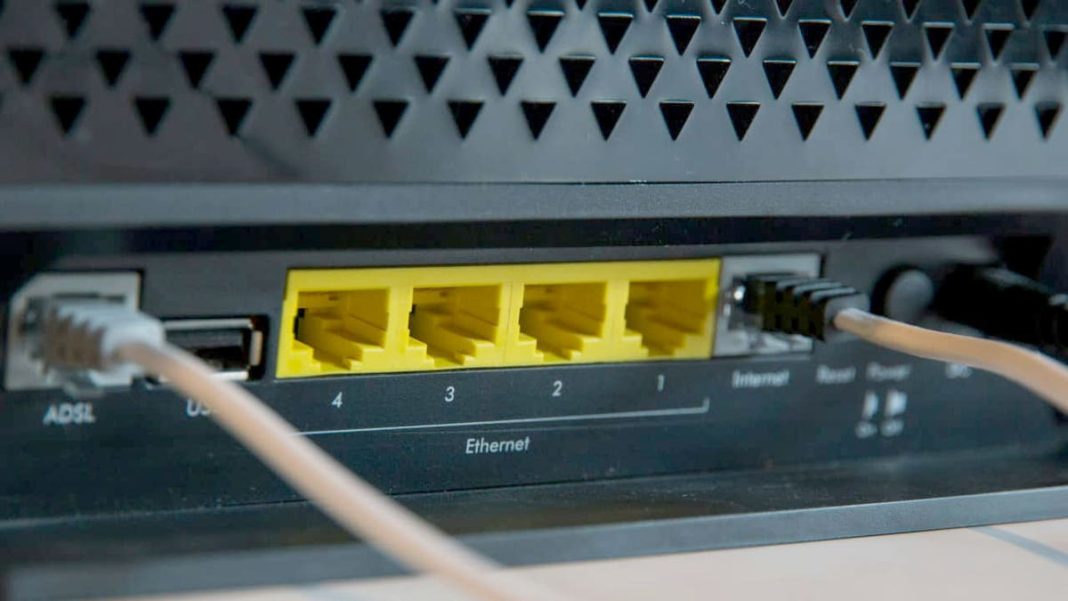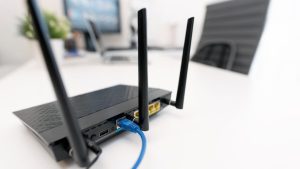Key Takeaways
- US Commerce Department proposes ban on new TP-Link sales over security concerns
- Multiple agencies cite potential foreign influence through Chinese company ties
- Military families identified as particularly vulnerable to router security risks
- TP-Link denies allegations, claims data stored securely in US facilities
The US government is considering a historic ban on TP-Link routers and cameras amid growing national security concerns about Chinese-made networking equipment. The Commerce Department has proposed blocking new sales following a months-long review of the company’s connections to China.
National Security Concerns Escalate
Multiple federal agencies including Homeland Security and Defense support the proposed ban, warning that TP-Link’s ties could expose American networks to foreign influence. Security experts note that home and office routers have been prime targets for foreign-backed hackers for years, serving as silent entry points to sensitive systems.
This potential ban represents one of the most significant consumer tech actions in US history, coming as lawmakers raise alarms about Chinese-made devices sold on military exchanges and in households nationwide.
Military Families Face Heightened Risks
Lawmakers from both parties warn that military households face extra vulnerability. Senator Joni Ernst (R-Iowa) leads a bipartisan group of 23 lawmakers concerned that TP-Link cameras and networking devices sold on Army, Navy and Air Force exchange sites could expose sensitive footage from base housing and dorms.
Representative Ashley Hinson (R-Iowa) echoed these concerns, stating these devices could act as backdoors for Chinese intelligence to collect information on service members and their families. Officials worry these products remain popular in military communities even when appearing out of stock.
“China will use any way to infiltrate us, and we must ensure they cannot access our homeland or military bases,” said Ernst.
Congressional Response and Investigation Timeline
Senator Ernst is pressing the Commerce Department to complete its investigation by November 30. Senator Tom Cotton (R-Arkansas), who chairs the Senate Intelligence Committee, wants faster action, arguing TP-Link could provide Chinese government access to American networks.
These concerns mirror past decisions involving Huawei and Kaspersky, which lost US market access due to national security risks. Congressional leaders advocate for strict scrutiny of foreign-made smart home devices sold on military bases.
TP-Link’s Strong Rebuttal
TP-Link Systems Inc. provided a comprehensive statement refuting all allegations. The California-based American company emphatically denies being tied to the Communist Party of China or subject to Chinese national security laws.
The company states it has split from China-based TP-LINK Technologies Co. Ltd. and operates independently. TP-Link maintains that US user data is securely stored on Amazon Web Services infrastructure in Virginia under full control of US operations.
According to their statement, TP-Link holds only 3% of the US security camera market and under 10% of North American residential Wi-Fi router sales. The company emphasizes substantial security investments across its entire product portfolio.
Essential Security Steps for Home Networks
Update Your Router Firmware
Check your router brand and update firmware through official apps or web dashboards. Replace older, unsupported devices with modern, secure alternatives.
Strengthen Password Security
Replace default passwords with strong, unique credentials for both Wi-Fi and router admin panels. Consider using password managers to generate and store complex passwords securely.
Comprehensive Antivirus Protection
Install real-time antivirus protection on all devices – computers, phones, and tablets. This safeguards against malware, phishing attempts, and ransomware threats.
Disable Unnecessary Features
Turn off remote access, WPS, and unused features that could create security vulnerabilities.
Network Segmentation
Keep laptops and phones on your main network while placing smart home devices, cameras, and IoT equipment on a separate guest network.
Broader Implications for Home Cybersecurity
The TP-Link debate highlights how routine home routers have become central to national security conversations. Regardless of government action, this situation underscores that cybersecurity begins at home with basic protective measures.
As Congress pushes for rapid investigation completion, the discussion continues about whether government should ban router brands linked to foreign influence or let consumers make their own security decisions.






